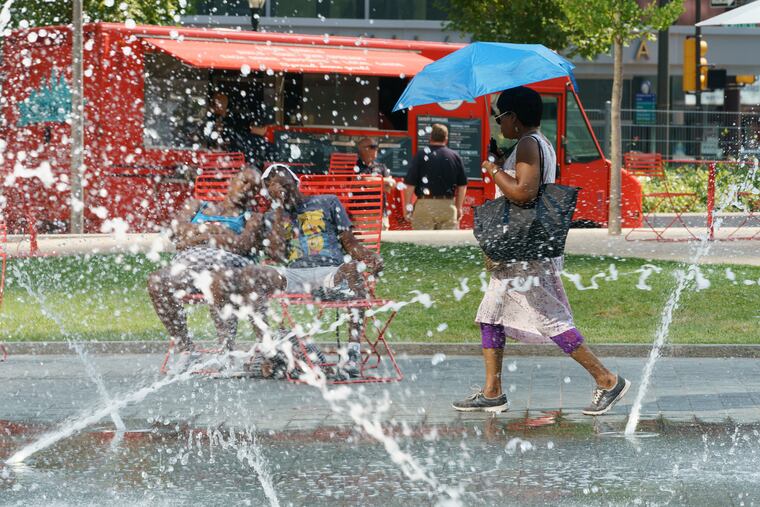Philly July 4th forecast: Holiday heat wave brewing
The ingredients also are in place for scattered thunderstorms in the afternoon and evening hours.

Tuesday is in line to be the first day of a heat wave that could extend into the long Fourth of July holiday weekend in the Philadelphia area.
And while the humidity was kept in check at the start of the last heat wave, this one is expected to get off to a steamy start.
The combination of heat and moisture in the air, along with other atmospheric conditions, will provide the ingredients for scattered showers and thunderstorms in the afternoon and evening hours through Saturday.
Some of these storms on Tuesday could be strong-to-severe, with the main hazards being gusty winds and locally heavy rain, the National Weather Service said.
The daily high temperatures are expected to be in the low 90s through Saturday. Three days of 90-degree plus temperatures are required for a heat wave and this one could become the second official one of the year on the Fourth — Thursday — if the forecast holds.
The Shore will flirt with a heat wave with temperatures in the mid to upper 80s through Saturday. Scattered showers and thunderstorms also are possible throughout the period.
The National Weather Service says there’s a moderate risk of rip currents at the Jersey Shore. The risk is low at the Delaware beaches.
» READ MORE: Which Jersey beaches are open and which are closed
» READ MORE: How the Shore celebrates July 4th: Boat parades, bike parades, Ocean City Pops, and more
The New Jersey Department of Environmental Protection in the meantime has issued a code orange air quality alert for Central and South Jersey, including the Shore.
The alert means air pollution concentrations within the region may become unhealthy for sensitive groups, including children and the elderly and people suffering from asthma and heart and lung diseases. People in those groups should avoid strenuous activity or exercise outdoors.
» READ MORE: Fireworks killed at least 5 people in 2018. Here’s how to stay safe.